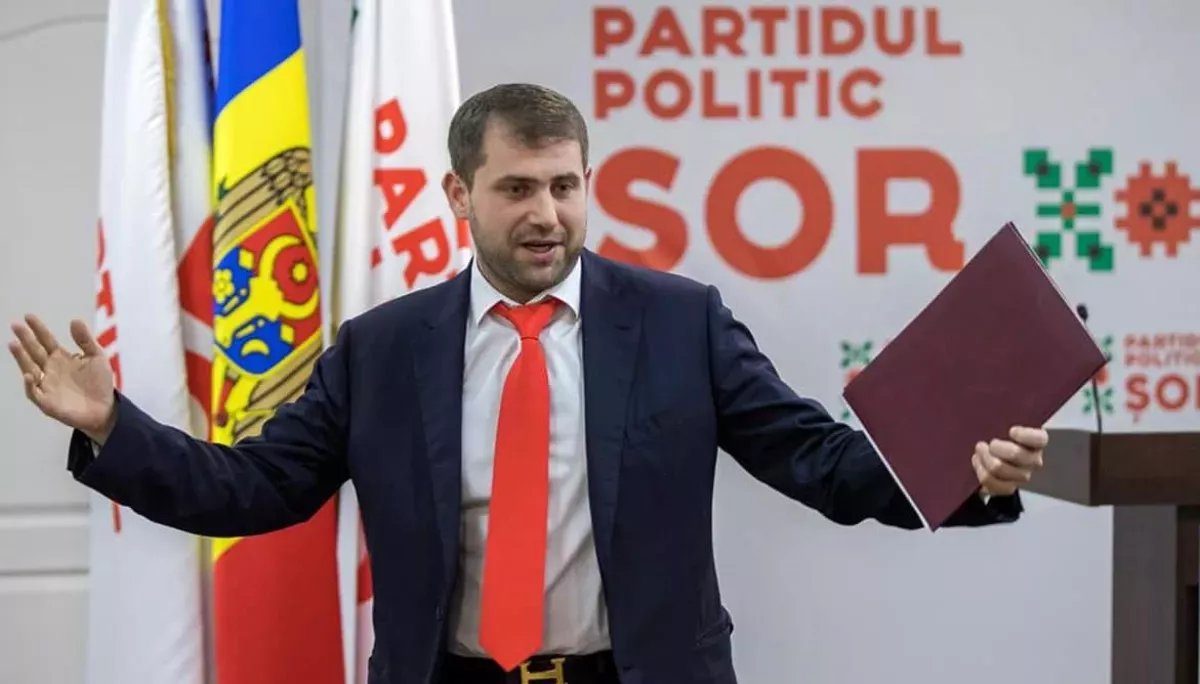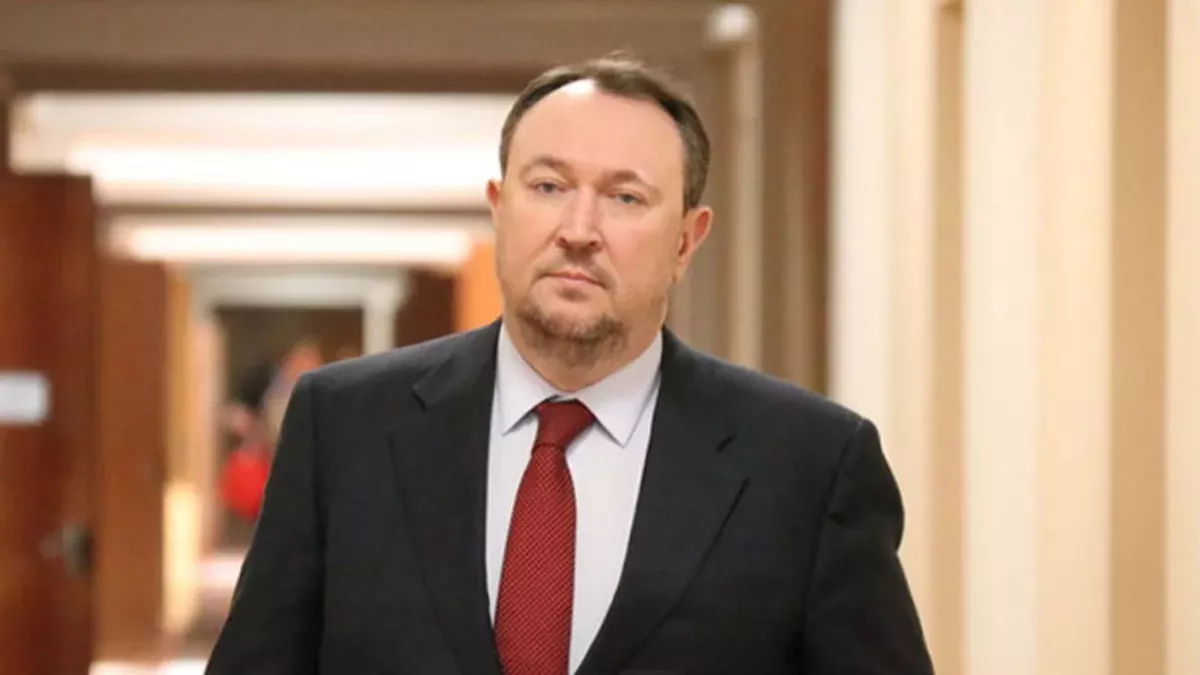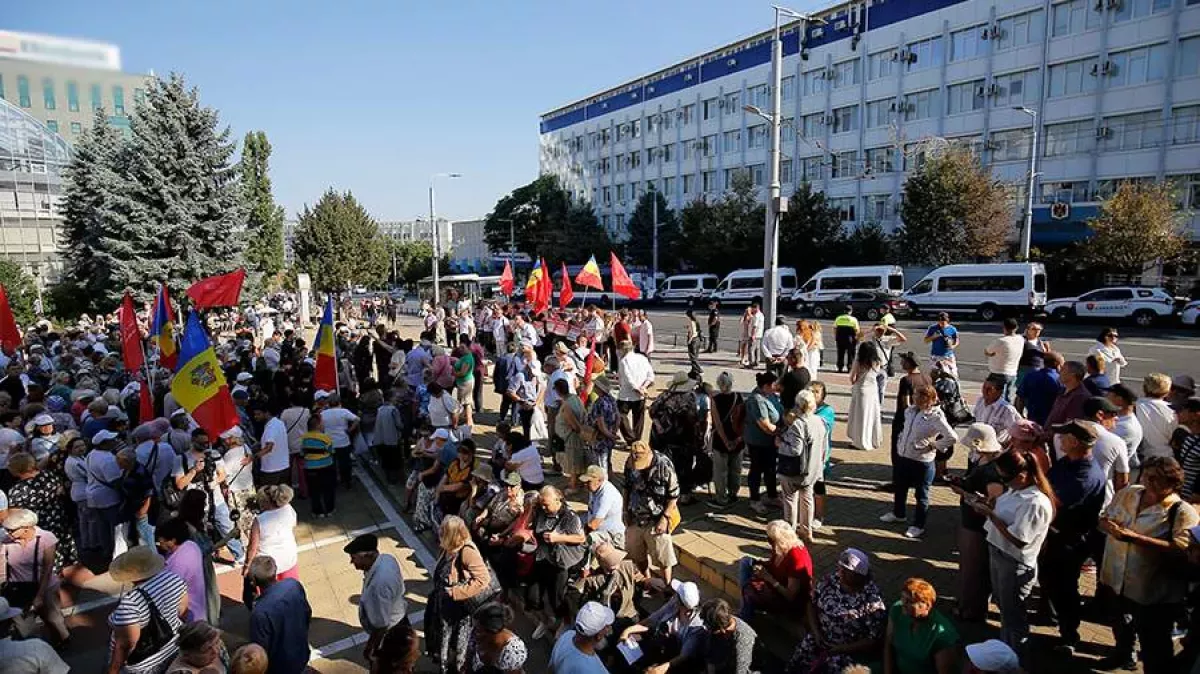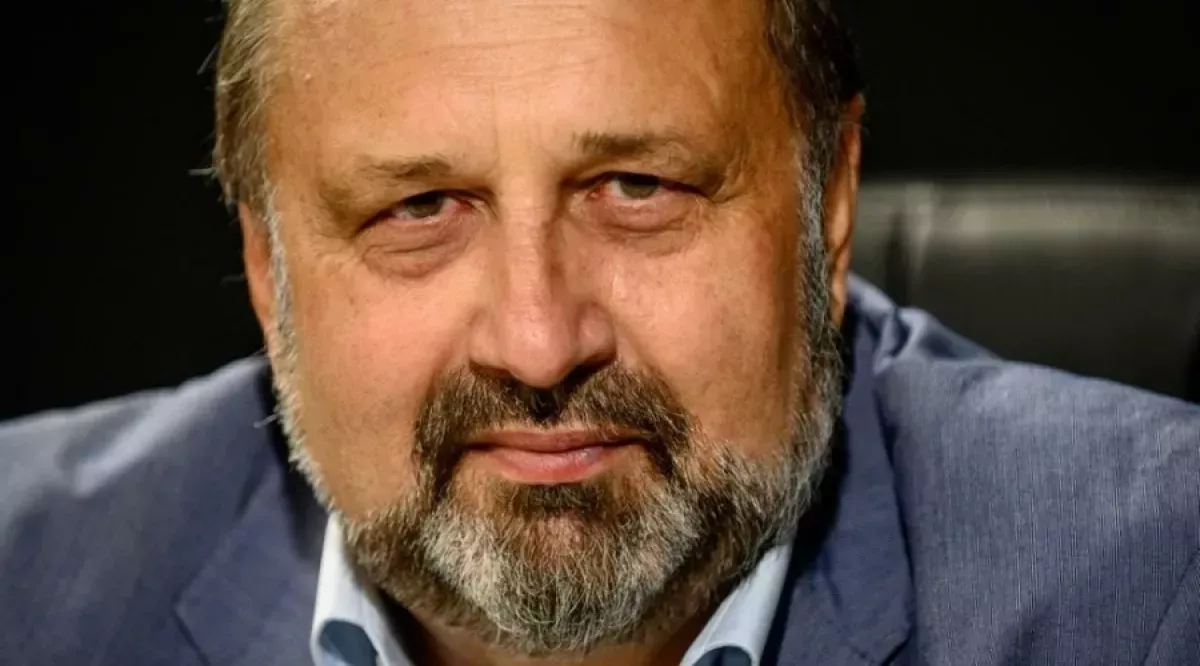How Moscow seeks to buy Moldova’s political future Hybrid Tactics in action
Russia’s attempts to influence Moldova persist. In September, the country is set to hold decisive parliamentary elections, and Moscow seeks to replace the pro-Western government with a pro-Kremlin one. Voter bribery is expected to be significant and generous.

Fugitive pro-Russian oligarch Ilan Shor is reportedly offering Moldovan citizens $3,000 per month to participate in protests against the authorities, according to NewsMaker.
On August 11, Shor published a video message calling for an indefinite protest in the central square of Chișinău this week. He promised $3,000 per month to each protester.
According to the oligarch, the payments are intended to “compensate you for your time, during which you will not be able to earn a salary.”
“When you arrive at the square, we will immediately start opening accounts for you, and from Saturday you will begin receiving $3,000 per month — to compensate for the time you cannot work,” Shor said.
Recently, Moldovan police warned of a new scheme for illegal funding and voter bribery, reportedly orchestrated from Russia via a mobile application.
Earlier, Moldova’s Central Electoral Commission (CEC) barred a pro-Russian bloc of parties associated with Shor, as well as certain individual political forces linked to him, from participating in the elections and called for measures to limit or suspend their activities.
How likely is it that pro-Russian forces could come to power in this year’s Moldovan parliamentary elections? Will official Chișinău be able to take all necessary preventive measures to ensure that no violations occur that could lead to such an outcome?
Caliber.Az consulted leading experts from Moldova to share their insights on the situation.

Former Moldovan Minister of Justice and ex-member of the Venice Commission of the Council of Europe, Alexandru Tănase, warned that the likelihood of a pro-Russian comeback in Moldova should not be underestimated.
“Having lost a significant portion of its influence in the region in recent years, Moscow views the September parliamentary elections as a strategic window of opportunity. Disinformation campaigns orchestrated from abroad and the use of Trojan political projects are traditional tools in the Kremlin’s arsenal, tested on other post-Soviet arenas,” Tănase said.
The situation is further complicated by voter fatigue over slow reforms and chronic social problems, against which slogans promising “cheap gas” and “stability” resonate emotionally. For Moscow, this is fertile ground: under the guise of “normalising relations with Russia,” the Kremlin seeks to impose a course that would effectively mean abandoning European integration, dismantling key reforms, and steering the country strategically toward the Eurasian sphere.
The risk of a shift in foreign policy is real, but it is not predetermined. The decisive factor will be not only the mobilisation capacity of pro-Russian forces but also the ability of the pro-European camp to offer society a convincing—and, above all, pragmatic—response to the accumulated problems. Otherwise, September could mark the beginning of a new cycle of Moldovan dependence on the Kremlin, not in the form of “soft power” but as part of Moscow’s broader geopolitical restoration in the post-Soviet space,” the former minister said.
According to him, by announcing the $3,000 payouts, Shor risks becoming the subject of a new criminal case for voter bribery.
“Today he is in Moscow, but it should be understood that Putin, who provides him protection, is not eternal. The moment will come when these statements could form the basis for criminal prosecution, and Shor himself could find himself in a situation where no political patrons can guarantee his safety.
Ilan Shor’s statement is not just a political stunt but a demonstration of Moscow’s readiness to use blatantly cynical methods to destabilise the situation in Moldova. The promise of $3,000 per month for participation in indefinite protests is an attempt to turn social discontent into a paid crowd, disguised as ‘popular anger.’
In reality, such a ‘compensation’ scheme serves several purposes.

First, to create the illusion of a large-scale popular movement, even if a significant portion of the protesters participate solely for financial gain.
Second, to move the political struggle onto the streets, creating an image of chaos and ungovernability for both domestic and international audiences.
Third, to influence the electoral process through psychological pressure, instilling the idea in society that the government is failing and that the “alternative” is already on the square.
In the short term, such tactics can create tension and divert government resources. But in the long term, they risk fully discrediting the pro-Russian camp, cementing its image as a corrupt political project willing to buy the country’s future for cash.
Digital tools for bribery are not just a “new form of an old crime” but an element of cyber-political sabotage and a new front in the hybrid war against Moldova.
The police report on a voter-bribery scheme via a mobile app coordinated from Russia opens a new chapter in the Kremlin’s toolkit: the “black cash register” is now moving online.
The risks to election transparency are obvious and multi-layered. Mobile platforms simplify mass involvement in illegal political operations, allowing the management of protester and agitator “networks” in real time without physical contact. The digital format conceals the origin of funds, as transactions can go through cryptocurrencies, electronic wallets, and chains of fake accounts, seriously complicating evidence collection and prosecution.
Stopping such a scheme is extremely difficult: it requires not only law enforcement resources but also technical cooperation with international IT companies and intelligence agencies.
However, the main danger is not the technology itself but its political purpose: to undermine trust in the electoral system, create the impression that “everyone can be bought,” and thereby reduce the legitimacy of future elections, regardless of the outcome. This is a strategic attack on the very foundation of democracy: citizens’ trust in voting, the politician said.
He added that the Moldovan authorities do have countermeasures: the Central Electoral Commission has already barred the pro-Russian block of parties in Shor’s orbit from participating and called to limit or cease their activities.
“The ban on Kremlin-funded parties is a signal, but if it is not followed by a systemic cleansing of the entire network, it will remain a loud but empty gesture, which Moscow can easily circumvent, turning it into yet another propaganda tool.
Excluding Kremlin puppet projects from elections is a timely step but clearly half-measures. This is not a blow to the system but only to one visible element of it. The network of pro-Russian influence in Moldova includes not only party labels but also an extensive infrastructure: media resources, shadow cash flows, paid ‘activists,’ and coordinators in Moscow.
If restrictions are limited to specific bans, the effect is like patching holes in a sinking ship: while one hole is fixed, water gushes through three new ones. The Kremlin has long mastered the technique of ‘cloning’ political projects—once a banned party disappears, a new one instantly appears with a different logo but the same people and funding sources.
What is needed is not cosmetic reform but a full-scale operation to neutralize Russian influence networks: cutting off all illegal funding channels, blocking disinformation platforms, prosecuting key coordinators and intermediaries, and legally eliminating ‘duplicate’ parties at the registration stage.
Chisinau must act as a country in a state of political defense. Without preventive and coordinated measures, reinforced by international participation, elections could turn into an arena of hybrid warfare, where the outcome is decided not by voters but by those who can buy the country’s future in bulk.
Time is running out, and the cost of delay could be too high.
To prevent bribery and violations that could alter the country’s political course, measures must be real-time, not just symbolic. Law enforcement should strengthen oversight of party and campaign financing, with mandatory disclosure of all funding sources online. This must be accompanied by strict sanctions—even immediate disqualification for opaque or suspicious transactions.
International observation must also be expanded—not only on election day but during the pre-election period. This involves engaging OSCE and EU missions, as well as relevant NGOs, to monitor attempts at interference early on,” Tenase emphasised.

Doctor of History and Director of the Institute for Effective Policy in Chișinău, Vitaly Andrievsky, warned that Moldova faces a major external threat in the form of a hybrid war orchestrated by Russia.
“Beyond the traditional toolkit of hybrid attacks, this includes leveraging pro-Russian parties and politicians to undermine Moldova’s European integration, as well as financing and coordinating influence networks within the country,” he said.
Andrievsky noted that the threat extends beyond openly pro-Russian forces to pseudo-pro-European and pseudo-unionist projects designed to confuse voters, fragment the electorate, and divert support from genuine pro-European parties.
He categorised internal risks into two main types: objective risks, including the pandemic’s aftermath, the war in Ukraine, the energy crisis, inflation, and declining real incomes; and subjective risks, encompassing government miscalculations, weak strategic communication, insufficient mobilisation of supporters, and delayed responses to crises.
In this context, Ilan Shor’s figure is just the tip of the iceberg—visible and convenient for media attacks. It could even be a cover operation, diverting attention from deeper processes unfolding through other political structures and “independent” parliamentary candidates. Some of them play the role of “useful idiots,” financially supported and promoted in the media, according to the institute’s director.
However, in his view, the question is not whether the authorities can deal with individual threats.
“That is necessary by definition. The real question is different: are they capable of offering the country a positive, unifying vision for the future?
Today, merely defending against attacks is not enough. Victory goes to those who offer society a dream and a clear image of the country 5–10 years from now—a creative idea, understandable goals worth enduring hardships for. And European integration should not be a slogan, but a concrete plan of reforms that ensures rising prosperity, modernized infrastructure, and improvements in education and healthcare.
If the ruling party can announce and convincingly justify ambitious projects for a European breakthrough—from economic modernisation to public administration reform—it will have a chance not only to maintain its position but also to win the elections. If it fails, external and internal threats could combine in a critical way, potentially reshaping the country’s political map in favour of Moscow-oriented forces,” concluded Andrievsky.








